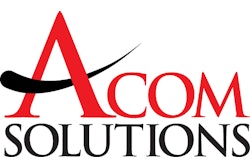Some workers face displacement, but most will see jobs migrate from mundane to more value-added positions, Yankee Group predicts
Boston — July 1, 2004 — Many U.S. workers will face displacement as companies move toward greater adoption of radio frequency identification (RFID) technologies, but many more will see their jobs evolve into higher-value positions, according to a new report from technology research firm the Yankee Group.
Manufacturers will spend approximately $2 billion on electronic product code (ePC) RFID tags and $1 billion to $3 billion on infrastructure during the next three years, Yankee writes in its report, "Users and Vendors Are Beginning to Explore the Utility of RFID Technology in the Supply Chain."
The largest portion of infrastructure spending in the coming three years will be allocated to consulting and systems integration. In the later stages of an RFID rollout, local and wide-area networks will play an important role in providing end-to-end visibility into supply chain operations. On the device front, barcode scanners will give way to RFID readers.
In terms of the impact on company employees, Yankee projected that RFID investments will affect some 4 million U.S. jobs by 2007, with some workers being displaced but most seeing their jobs migrate from the mundane to more value-added positions.
"With no line-of-sight requirements, automatic data capture and read/write capability, RFID technology offers numerous advantages over bar coding," said Adam Zawel, wireless/mobile enterprise and commerce director at Yankee. "However, RFID is more than that. RFID has the potential to dramatically improve supply chain management by reducing manual operations associated with data collection, providing real-time supply chain visibility and enabling real-time changes in the field.
"Vendors providing RFID tags, readers and networking equipment will clearly benefit as RFID adoption increases," added Michael Dominy, business applications and commerce senior analyst at the consultancy. "In addition, the opportunity for vendors in the database, enterprise application, B2B communications and systems integration markets is substantial."
Enterprises will turn to vendors that can take them through a rational migration path with practical applications and reasonable changes to the business within a palatable time frame, Yankee asserts. Enterprise resource planning (ERP) and supply chain software vendors such as SAP, Oracle, PeopleSoft, i2 Technologies, Manugistics, Manhattan Associates and RedPrairie will act as primary migration managers for existing customers, according to the consultancy.





